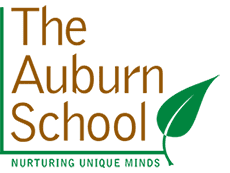Admissions
The Auburn School encourages applications from students of all backgrounds. Learn more about our admissions process.
Contact Us Today
Do you have questions about Auburn? Contact us today to speak with someone and learn more about Auburn.
Our Mission
We offer a dynamic educational program for intellectually curious students with challenges in the areas of communication, socialization, pragmatic language, and organization. Our program is appropriate for students who can learn successfully and appropriately in a small classroom setting. Auburn’s program simultaneously supports the development of academic skills, social competency and pragmatic language in an engaging educational environment.
To achieve this mission, The Auburn School:
- Integrates social skills and pragmatic language development throughout the curriculum and school day using research-based programs and educational best-practices;
- Provides a challenging academic curriculum featuring multi-sensory instruction, research-based curriculum and appropriate student accommodations;
- Offers a safe, nurturing and highly personalized learning environment for children through small class sizes, individualized learning plans and a supportive school setting;
- Identifies and develops individual student strengths, talents and interests; and
- Seeks out, employs and supports the very best educators and staff.
“The Auburn School fills a very important niche in our community. The teachers, administration and support staff bring a very high level of understanding to the needs of children with social differences. And they don’t just talk the talk. Auburn walks the walk. They have the expertise and practical experience to promote each child’s social-emotional development while providing solid academics. This is a truly nurturing school community.”
– Dr. Dan Shapiro, Developmental-Behavioral Pediatrics
What We Value
CHOICE: We founded our school because parents of our children needed a better choice. They have for too long been forced to choose between schools that offered their children a full, challenging academic program and schools which gave them the intense social support they needed. That choice is no longer necessary. Our school addresses both of their needs.
LAUGHTER: We teach our students the rules of conversation and the conventions of social interaction, but we do not teach them to laugh. That is something they find themselves. It comes when their minds are delighted by an intellectually sophisticated idea, by an incongruous new fact, or when a new friend makes a joke. It comes when they connect in a novel and pleasing way, and it is the most wonderful sound that can occur here.
APPRECIATION: Unseen in their complexity and individuality, unappreciated for the distinctive gifts they have, children can lose themselves in schools that do not address them as who they are. That doesn’t happen here. By being understood, they begin to emerge. In experiencing the joy of connection, they learn to connect. In very small classes, no one falls between the cracks. There are no cracks.
HAPPINESS: Happiness is not trivial or peripheral at Auburn. Because our students have often been extremely unhappy in their previous schools, and because unhappiness forces them inside of themselves, their happiness is at the center of our work. The result is that children who have never liked coming to school cannot wait for Monday mornings or the first day after vacation.
CHALLENGE: Our academic program is rigorous because our children are bright and thrive on intellectual stimulation. Highly personalized to address the wide range and remarkable depth of our children’s interests, academics at Auburn comprise all the traditional subjects with significant experiential and project-oriented work. The result is children who are deeply engaged, inspired to learn, and fully prepared for future educational experiences.
CURIOSITY: Children come to us with uncommon, often narrowly focused curiosity, and so part of our work is to constantly stimulate their minds. But just as crucial, we work to expand the circle of their curiosity. We want them to become curious about the larger world, and about other people, as well, because that is another step toward the engagement that is at the heart of our work.
FRIENDS: During their time here, our children make the frightening, exhilarating journey from isolation to connection. Slowly, through false starts and setbacks, with constant guidance and support, they begin to construct for themselves the invisible bridges that connect one person to another. This ability to bond with other people has many names and shows itself in many small ways. We call it “friendship” and nothing here is more important at Auburn.
SELF-ADVOCACY: The ability of our children to advocate for themselves is critical to their future success. This ability develops at Auburn through the complex interaction of growing self-awareness, strengthening self-confidence, and constantly improving communication abilities. The goal is young people who know themselves, can articulate their needs, and have the ability to enlist others to help them achieve in a world not often designed for them.
FUTURE: We set high goals for our children’s future because we understand their real potential. When they leave Auburn, we expect them to thrive at the next level and throughout their college years. And beyond that, we expect them to succeed in a world desperately in need of the new ideas and fresh perspectives they bring. Ultimately, we want them to become fully independent thinkers and decision-makers who create fulfilling lives made rich through relationship with others.

